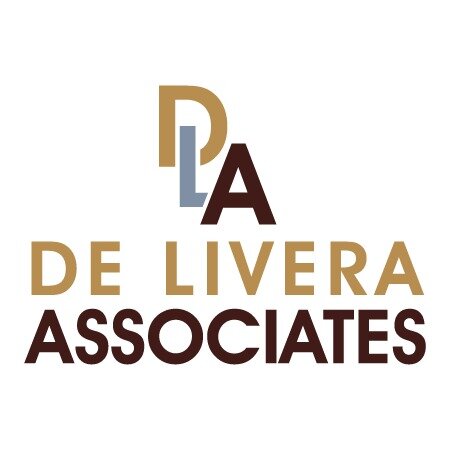Best Creditor Lawyers in Colombo
Share your needs with us, get contacted by law firms.
Free. Takes 2 min.
List of the best lawyers in Colombo, Sri Lanka
About Creditor Law in Colombo, Sri Lanka
Creditor law in Colombo, Sri Lanka, pertains to the legal framework governing the relationships and disputes between creditors and debtors. It focuses on rights and obligations related to debts, security interests, and the procedures available for resolving credit-related disputes. Given Sri Lanka's vibrant economy and financial sector, creditor laws are crucial in ensuring financial stability and protecting the interests of both creditors and borrowers in the region. Colombo, being the commercial capital, has a significant concentration of financial activities, making it essential to have a clear understanding of creditor rights and responsibilities in this jurisdiction.
Why You May Need a Lawyer
There are several scenarios where individuals or businesses may require legal assistance related to creditor law in Colombo:
- If you are a business owner facing cash flow issues and struggling to meet your credit obligations, a lawyer can help negotiate terms with creditors and guide you through restructuring options.
- Individuals overwhelmed by personal debt may seek legal advice to explore options such as debt settlement or filing for insolvency.
- Creditors wishing to enforce security interests or recover outstanding debts might need legal support to initiate recovery actions effectively.
- In cases of disputes over credit terms or default, legal representation can provide clarity and protect your rights.
- Troubles with understanding or complying with the conditions laid down in financial agreements often necessitate seeking a lawyer's advice.
Local Laws Overview
Sri Lanka's creditor laws encompass several key legislative instruments:
- The Debt Recovery (Special Provisions) Act provides a streamlined process for banks and financial institutions to recover loans in default while safeguarding debtor interests.
- The Companies Act governs how businesses can enter into credit arrangements and handle insolvency and liquidation, impacting how creditors can recover debts from companies.
- The Mortgage Act outlines the legal framework relating to mortgage-backed lending and the enforcement of mortgage rights by creditors.
- The Insolvency Ordinance provides legal processes for handling personal and commercial insolvency, affecting creditor's rights in the distribution of debtor assets.
Frequently Asked Questions
What should I do if a debtor defaults on a payment?
If a debtor defaults, it is advisable to send a formal demand notice. If amicable resolution fails, you may need to pursue legal action with the help of an attorney.
How long does it take to recover a debt through the courts in Colombo?
Debt recovery can vary in duration, generally ranging from several months to a few years, depending on the complexity of the case and the efficiency of the court process.
Can a creditor seize a debtor’s personal property in Sri Lanka?
Creditors may seize property if they hold a secured interest, like a mortgage. Unsecured creditors typically need a court judgment before they can attach a debtor's property.
What is the statute of limitations for debt recovery in Sri Lanka?
The statute of limitations for initiating a debt recovery action varies, but typically ranges from six years for most contractual debts, as stipulated under Sri Lankan law.
How can I protect my rights as a creditor?
Ensure credit agreements are well-drafted, secure interests where possible, keep accurate records, and seek legal advice promptly when issues arise.
What are my options if a creditor sues me?
Seek immediate legal advice to explore defenses available, potential for settlement negotiation or payment arrangements to satisfy the creditor's claim.
Can creditors charge interest on overdue payments?
Yes, creditors can charge interest on overdue payments if stipulated in the credit agreement, subject to legal and contractual interest rate limits.
Is arbitration an option in creditor disputes?
Yes, arbitration may be used as an alternative dispute resolution method if both parties agree and it is permitted under the credit agreement.
How can I manage multiple creditors effectively?
Consider seeking debt counseling, consolidate debts if possible, and negotiate arrangements with creditors to establish manageable repayment plans.
Do Sri Lankan laws protect against unfair creditor practices?
Yes, there are various consumer protection laws and regulations designed to prevent unscrupulous practices by creditors, safeguarding the rights of debtors.
Additional Resources
Individuals seeking further assistance may reach out to the following resources:
- Central Bank of Sri Lanka: Offers guidelines and consumer protection information regarding financial institutions.
- Legal Aid Commission of Sri Lanka: Provides legal assistance and consultation for debt-related matters.
- Colombo Magistrates' Court: For filing recovery cases and obtaining legal orders.
- Consumer Affairs Authority: Helps in matters related to unfair trade practices and consumer credit issues.
Next Steps
If you find yourself needing legal assistance concerning creditor matters in Colombo, consider the following steps:
- Consult with a specialized attorney who understands creditor law in Sri Lanka.
- Gather all relevant documents, including credit agreements, payment records, and correspondence with creditors or debtors.
- Evaluate your financial position or liabilities and prepare information to discuss possible strategies with your lawyer.
- Explore dispute resolution options, such as negotiation, mediation, or, if necessary, litigation to protect your interests.
- Stay informed and compliant with local laws and practices to navigate creditor relationships effectively.
Lawzana helps you find the best lawyers and law firms in Colombo through a curated and pre-screened list of qualified legal professionals. Our platform offers rankings and detailed profiles of attorneys and law firms, allowing you to compare based on practice areas, including Creditor, experience, and client feedback.
Each profile includes a description of the firm's areas of practice, client reviews, team members and partners, year of establishment, spoken languages, office locations, contact information, social media presence, and any published articles or resources. Most firms on our platform speak English and are experienced in both local and international legal matters.
Get a quote from top-rated law firms in Colombo, Sri Lanka — quickly, securely, and without unnecessary hassle.
Disclaimer:
The information provided on this page is for general informational purposes only and does not constitute legal advice. While we strive to ensure the accuracy and relevance of the content, legal information may change over time, and interpretations of the law can vary. You should always consult with a qualified legal professional for advice specific to your situation.
We disclaim all liability for actions taken or not taken based on the content of this page. If you believe any information is incorrect or outdated, please contact us, and we will review and update it where appropriate.











